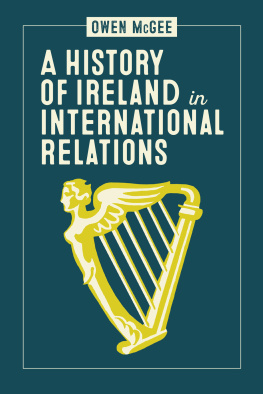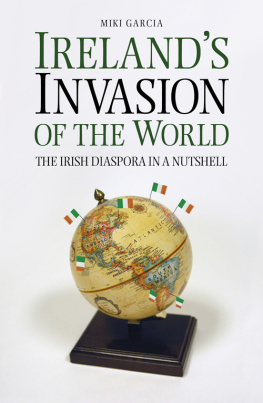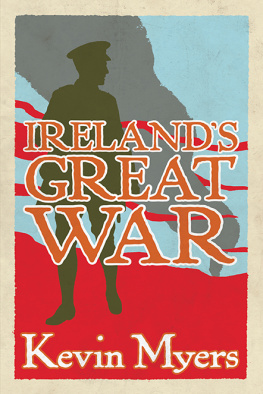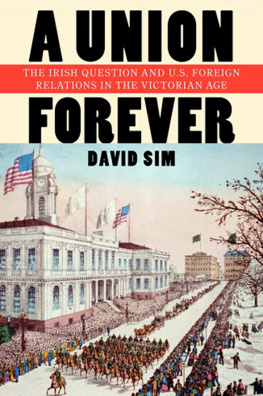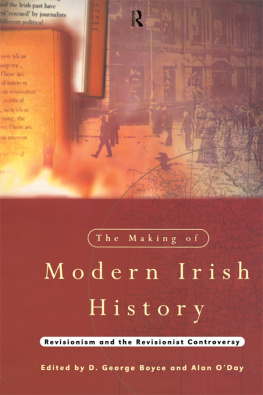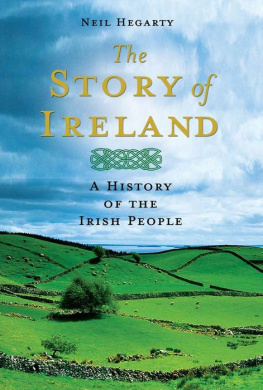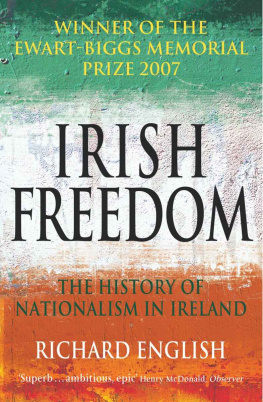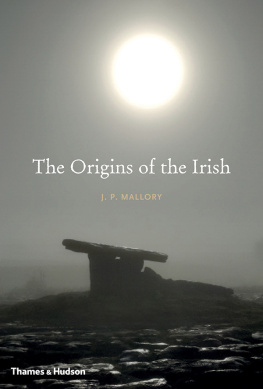
A Republican Moment :
Irelands Independence
Struggle in a Global Context,
19191922
S inn Fins pro-American take on international relations was intended to capitalise upon the development of a political lobby group in the United States known as the Friends of Irish Freedom. This raised the possibility of Irelands case being presented before the US Houses of Congress.
Historically, the idea that a set of egalitarian republican values existed and were likely to find support through a kind of universal brotherhood of man had been romanticised by many European artists ever since the days of Ludwig van Beethoven. On an intellectual level, however, this idea had often been associated with the cult of freemasonry.
The material and economic basis of the Irish independence struggle was shaped largely by First World War circumstances. British trade between Britain and Ireland (about 100 million a year) had been greater than British trade with any independent country in the world, with the single exception of the United States, and was also greater than British trade with France and Germany combined. Albeit for only a three-year period, this led to a very perceptible increase in writings on international relations within the Irish Jesuit journal Studies , which was published by University College Dublin (UCD).
Sinn Fin emphasised the degree to which Americas entry into the war and the war itself had been economically motivated.
Henry Ford had been a pacifist during the First World War. In this capacity, he had promoted an American Protestant womens movement that had appealed to the Vatican for its support in creating an international pacifist movement.
This growing international association between Irish nationalism and a liberal pacifism also impacted on domestic American politics. An Irish Progressive League was created in America that championed a new anti-militarist form of labour politics radicalism that issued a direct challenge to the tradition of Irish support for socially conservative American republican patriotism, represented politically by Devoys Gaelic American and the Friends of Irish Freedom.
The first official diplomatic exercise of the republican government of Dil ireann was to issue a message to the free nations of the world alongside an Irish declaration of independence. In keeping with Sinn Fin propaganda ever since Americas entry into the war in April 1917, this argued that Ireland is the gateway of the Atlantic and that her independence is demanded by the Freedom of the Seas since, geographically, Ireland was the point upon which great trade routes converge: her great harbours must be opened to all nations, instead of being the monopoly of England, and, in the process, make an independent Ireland a benefit and safeguard to Europe and America. America had recently announced that it intended to increase by fourfold the size of its mercantile marine. Ireland was now suggesting that altering British monopolies in international trade could be in everyones best interests. However, the fact that Britain was essentially the prime mover in promoting the idea of creating a post-war League of Nations as a forum for multilateral diplomacy played a significant part in overshadowing this Irish claim.
The Belfast-born British diplomat James Bryce, a key intermediary in Anglo-American relations, was an author of the League of Nations idea in his capacity as a member of the International Court of Justice at the Hague.
To enhance its capacity to maintain a competitive advantage over all its rivals, the British Empire purposively made all its overseas dominions representatives at the Versailles peace conference. In turn, this entitled them to both membership and voting rights in the proposed League of Nations at Geneva, which was announced as part of the final Versailles peace treaty of May 1919. As the Irish republics consul at Paris, Sean T. OKelly had attempted in vain to gain admittance to Versailles. The Irish governments position with regards to the League of Nations was that it was prepared to support Irish membership of such a league if it was based on equality of right with guarantees that there would be no difference between big nations and small, between those that are powerful and those that are weak.
Noting that the domestic problems of Europe are of no consequence to the United States of America, Sinn Fin expected as early as the summer of 1918 that America would not be enthusiastic about the League of Nations idea. Reflecting this, Irelands primary concern was simply to concentrate on the fact that our fellow countrymen in the states will know how to take advantage of the Irish pronouncement for independence to ensure that America will understand the voice of Ireland and America will respond. This was the Achilles heel of the Friends of Irish Freedoms campaign.
The attitude of Wilsons Democratic Party in the United States was disappointing for Ireland. A cross-party Irish delegation had attempted, in vain, to meet Wilson in Paris to offer him the freedom of Dublin. On this occasion, intimations were received from Edward House and Herbert Hoover, then the head of the American Relief Administration
Dil ireanns economic policy was based on a desire to change banking practices in Ireland by adopting a more American-style policy of allowing extensive loans to even small businesses. This was considered as an essential first step to allow Ireland to capitalise upon various international factors. This included the capacity of many pre-war pastoral countries to capitalise upon the trend of American investment in Europe to transform themselves into a manufacturing exporter; the existence of a permanent market on the European continent for Irish agricultural produce; and the potential, once Ireland was able to burst through the trade wall of Britain, to revive various historical trade routes as well as to create entirely new ones. This bank sought to cultivate links with cooperative banks in both America and Germany and to scrap the Irish Land Commission, but the British government considered this to be an illegal initiative.
Sinn Fins expected victory in all local government elections was intended to bring about a complete revolution in banking practices in Ireland. This was because of the willingness of all local government bodies, which swore an oath of loyalty to the Dil as the national parliament and intended setting up their own courts, to invest their funds in the Dils bank to effectively transform it into a new Irish national bank. This was the essential basis of Sinn Fins counter-state programme: enabling Irish nationalists to take administrative control of all the apparatus of government nationwide. This initiative had the support of the vast majority of Irish elected representatives, both locally and nationally, but it was perpetually frustrated thereafter.
After direct trade between Dublin and New York was initiated, the monthly figure for Dublins exports to America (400,000) soon became equivalent to annual figures before the war.
Harry Boland, a gregarious Dublin sportsman who had resigned as IRB president to take up a position as the Dils agent in America, responded by organising a well-publicised national lecture tour for de Valera.
After September 1919, de Valera directed Katherine Hughes and Robert Lindsay Crawford, an Irish-born editor of the Toronto Statesman , to form an Irish Self-Determination League in Canada. This was supposed to work in tandem with the British organisation and to seek to establish a similar body in Australia.
Although the Republican Party rejected the candidate that Cohalan supported for the presidential election, de Valeras Cuban analogy and practical sabotage of Cohalans tactics was the subject of much criticism even from some Catholic bishops within the Friends of Irish Freedom, who accused de Valera of a lack of judgment and a failure to understand his need for American advice on how to handle American politics. Shortly thereafter, upon the arrival in America from London of Daniel Mannix, an Irish-born Catholic archbishop of Melbourne, de Valera decided to retire from public speaking in America. He wrote to Griffith that the greater part of my usefulness here is over and that he believed the work which is being done in Ireland towards making the government function as a de facto government is advancing our cause, even here, more than anything that could be done by our friends in
Next page
